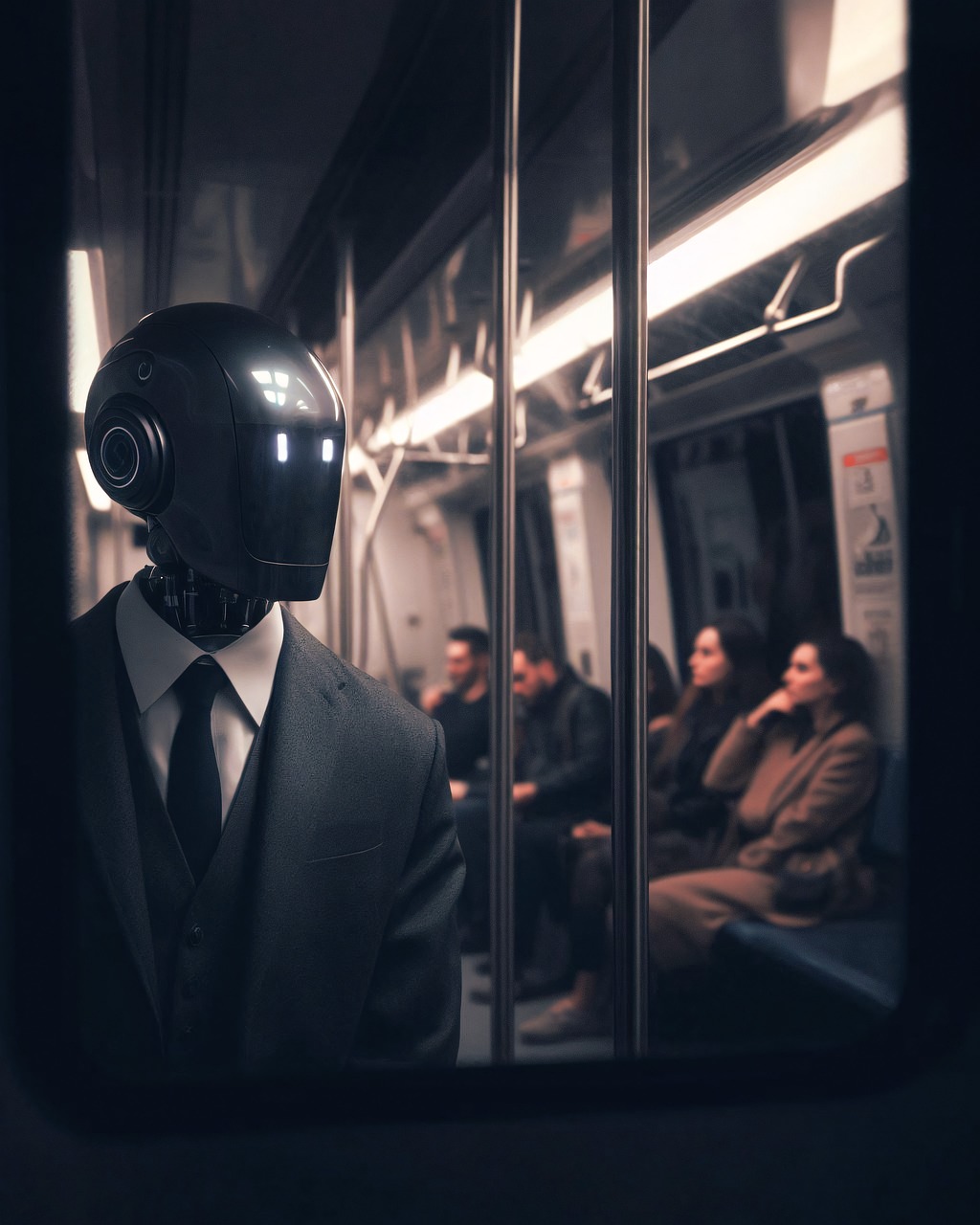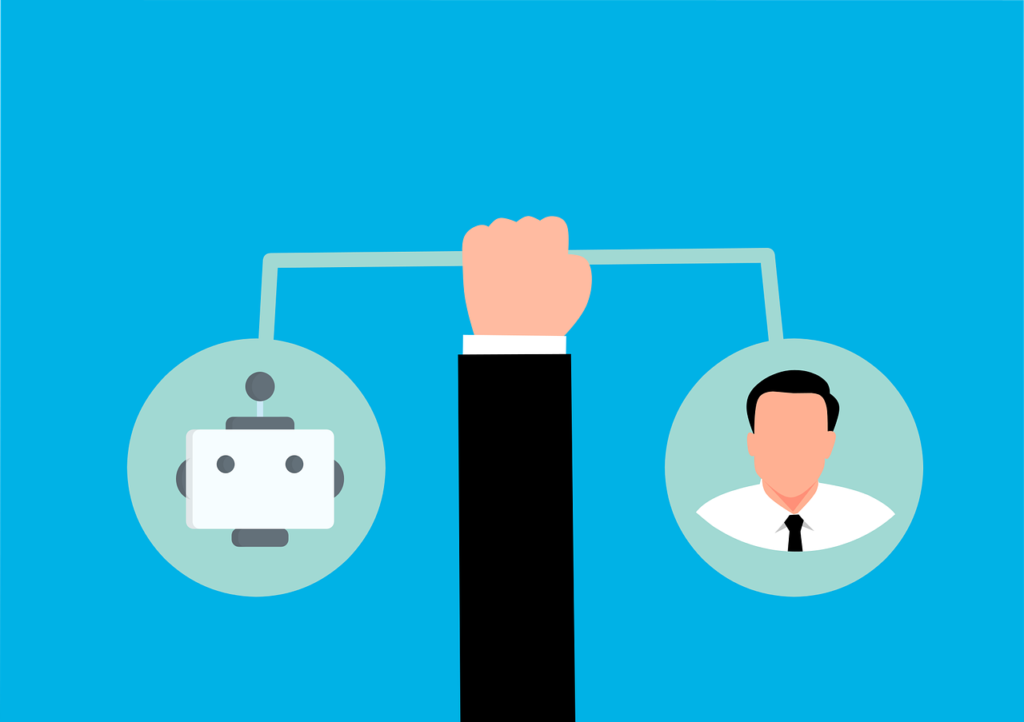How Is Ai Technology Used In Job Automation

Imagine lounging at your favorite cafe, sipping on an aromatic brew as your AI assistant virtually shoulders your work load. Sounds enticing, doesn’t it? In the article “How Is AI Technology Used In Job Automation”, you’ll explore the riveting world of artificial intelligence and its increasing role in job automation. You’ll gain fascinating insights about how AI is being leveraged to automate repetitive tasks, increase productivity and even make critical business decisions. So gear up for an enlightening read that promises to change the way you view your work and maybe, the entire world!
Understanding AI and Job Automation
Ai and job automation have become major buzzwords in today’s world. But unless you’re well-versed with technology and digital transformation trends, you might find these terms confusing. Essentially, every technological advancement aims at simplifying tasks or solving problems that humans alone can’t overcome effectively.
Definition of AI
AI or Artificial Intelligence refers to the simulation of human intelligence processes by machines, particularly computer systems. It involves learning, reasoning, problem-solving, comprehension, and self-correction. Examples include speech recognition, visual perception, and even decision-making capabilities matching or surpassing human levels. The birth of AI has led to the development of advanced systems capable of learning and improving as they are exposed to more data.
Definition of Job Automation
Now let’s talk about job automation—it’s essentially the usage of control systems (like computers) and information technologies in operational processes, effectively reducing human intervention. With the tremendous growth in technology, many jobs across various industries are now automated, leading to increased productivity, accuracy, and efficiency.
The link between AI and Job Automation
When we combine AI and job automation, we have a compelling mix. AI powers job automation, resulting in self-correcting and learning automated systems. Such systems can handle a huge variety of tasks, from simple, repetitive tasks to complex problem-solving activities, without human intervention. AI and job automation together can lead to significant cost savings, as they can work round-the-clock tirelessly while drastically reducing errors.
AI in Manufacturing Automation
Manufacturing is one of the sectors that have greatly benefited from AI. It has revolutionized operations, improving both productivity and safety.
Role of AI in manufacturing
AI in manufacturing usually involves the use of computer systems to handle complex manufacturing tasks. Robots powered by AI can efficiently finish repetitive tasks, maintain consistency in production, and detect and rectify errors during the process.
Case studies of automated manufacturing through AI
Automated processes are now a mainstay in sectors like automobile manufacturing, where AI-powered robots handle tasks like assembling cars. Likewise, in electronics manufacturing, AI systems are able to handle delicate and precise tasks like assembling circuit boards.
Benefits and concerns in AI-based manufacturing automation
The primary benefits of AI-based manufacturing are cost efficiency and consistency in quality. However, the concerns include massive job displacement because of automation, and dependency on technology for critical production processes.

AI in Service Industry Automation
Similar to manufacturing, the service industry too has embraced automation, particularly powered by AI.
Role of AI in service industry
AI plays a key role in the service industry, taking over tasks such as customer support via chatbots, handling customer queries, and even making data-driven personalized recommendations.
Examples of AI in service industry automation
One of the best examples in this sector is AI chatbots that provide 24/7 customer support, and are capable of addressing customer’s queries and even assisting them in making purchase decisions. Furthermore, AI can also be used in resource scheduling, process optimization, and fraud detection.
Pros and cons of AI automation in service industry
The major advantage of AI in the service industry is that it can provide personalized experiences at scale. On the downside, such automation can potentially lead to job displacement, and it also raises significant concerns about data privacy.
AI in Healthcare Automation
AI has huge potential in the healthcare sector, promising to significantly improve patient care and streamline administrative processes.
AI in automated diagnosis and treatment
AI tools can help doctors with diagnosis and treatment. For instance, machine learning algorithms can analyze medical images to identify patterns that humans might overlook. These tools can make recommendations based on large amounts of data more accurately and faster than humans.
AI in administrative tasks automation
AI can help automate time-consuming administrative tasks. For instance, voice-to-text transcription can ease clinical documentation, and AI algorithms can streamline appointment scheduling and billing.
The impact of AI automation in healthcare
While AI automation in healthcare can bring about cost reduction and improved patient care, it also presents significant challenges like securing patient data and possible job losses for administrative staff.

AI in Retail Automation
Retail is another area where AI has made a significant impact.
Usage of AI in retail automation
AI is used in retail to personalize shopping experiences, manage inventory, and even automate checkouts. These systems enable retailers to understand customer behavior, streamline processes, and improve sales.
Benefits of AI automated systems in retail
AI automation in retail gives businesses invaluable insights about customers and their shopping patterns, leading to better marketing strategies. However, it also means a decrease in employment opportunities in retail stores.
Real-life examples of AI in retail automation
Many online retailers use AI-powered recommendation engines to suggest relevant products to customers. Moreover, certain physical stores have implemented AI to automate checkouts, eliminating the need for cashiers.
AI in Transportation and Logistics Automation
AI has also heavily influenced the transportation and logistics sectors.
Role of AI in automating transport systems
AI systems help improve route planning, resulting in more efficient deliveries and fuel savings. Autonomous vehicles like self-driving cars and drones are other significant applications of AI in transportation.
Use case scenarios of AI in logistics automation
Companies like Amazon use AI-powered drones for delivering small packages, while firms like Tesla and Waymo are testing self-driving cars powered by AI.
Challenges and solutions of AI in transportation automation
While AI promises great benefits in transporting goods and people, it also presents considerable challenges like safety concerns and massive job displacement for drivers. Progressive policies aiming at skill development for the affected workforce can help mitigate these challenges.
AI and Job Displacement
As automation continues to penetrate industries, concerns about job displacement are rising.
Understanding job displacement due to AI
AI-based automation can lead to significant job displacement particularly for repetitive and low-skill jobs. Cases in point are cashiers in retail stores, drivers in transportation, and factory workers in manufacturing.
Industries most affected by AI automation
As discussed earlier, the sectors most affected by AI automation include manufacturing, retail, transportation, and even the service industry.
Addressing job displacement challenges through reskilling and upskilling
Addressing job displacement requires a focus on reskilling and upskilling the workforce. It’s essential to understand that while AI automation may eliminate certain jobs, it also creates new opportunities that require new skills.
AI and the Future Workplace
AI is set to become a prominent fixture in future workplaces.
Predictions for AI in job automation
Most future jobs will require us to work side by side with AI systems. As AI becomes smarter, it is likely to take over more complex tasks, continuously changing the dynamics of the workplace.
Skills demand shift due to AI automation
As AI takes over more tasks, there will likely be increased demand for skills that AI can’t replicate, like critical thinking, creativity, and emotional intelligence.
Role of AI in creating new job opportunities
While AI may displace certain jobs, it also creates new job roles like managing AI systems, data analysis, and machine learning engineers. Companies are increasingly looking for talents who can successfully navigate this new landscape.
Ethical Considerations of AI in Job Automation
As we become more reliant on AI, ethical considerations become all the more important.
Exploring the ethical concerns
One of the main ethical concerns about AI is the potential for increased surveillance and intrusion of privacy. Furthermore, since machines are not capable of moral reasoning, humans must remain accountable for decisions made by AI systems.
Balancing AI benefits and potential harms
While AI can offer significant benefits like cost savings and efficiency gains, it’s essential to balance these benefits against potential harms, including job loss, privacy concerns, and increased inequality.
Role of policy and regulation in guiding AI use in job automation
Robust policies and regulations are needed to guide the use of AI in job automation. Such rules should emphasize transparency, accountability, and fairness, while also promoting innovation.
Challenges and Limitations of AI in Job Automation
AI in job automation is not without its challenges and limitations.
Technical limitations of AI
Despite significant advancements, AI still has its limitations. For instance, while AI can handle data crunching effectively, it often fails to understand the nuanced aspects of human language and culture.
Issues with data privacy and security
As more data gets processed by AI systems, concerns regarding data privacy and security continue to grow. Ensuring that these systems are secure and that data is handled responsibly is paramount.
Understanding the limitations of AI automation in certain jobs
Even the most advanced AI systems still can’t replace humans in jobs that require high levels of creativity, empathy, and critical thinking. It’s important to keep in mind these limitations as we embrace AI in the workplace.